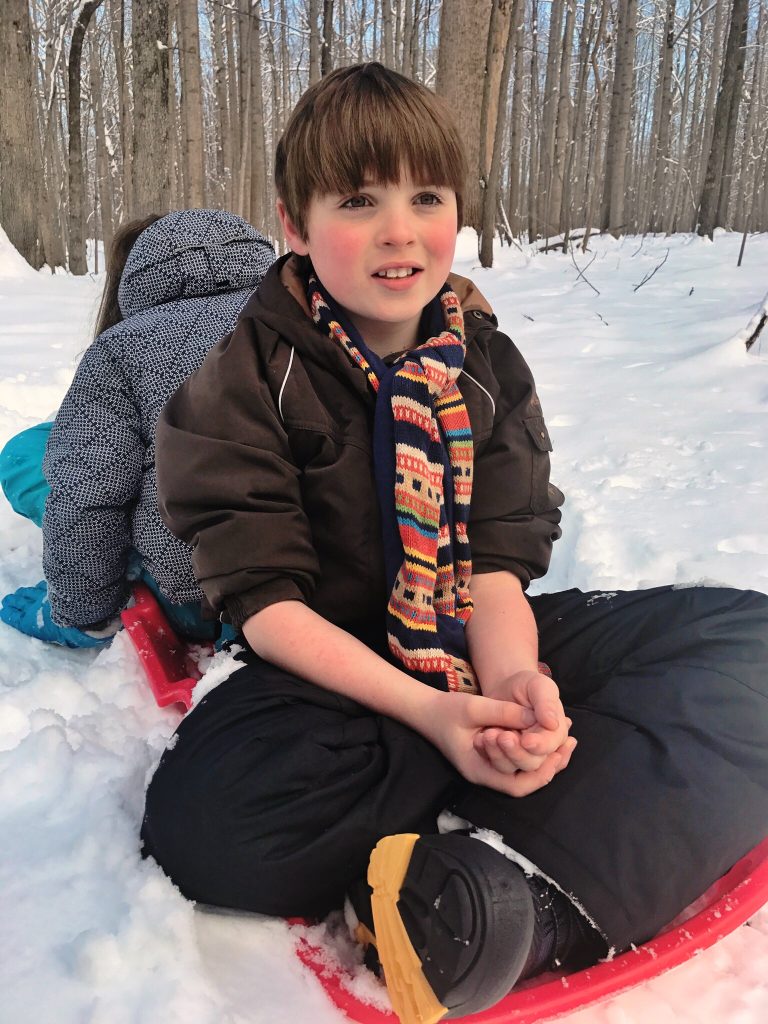I’ve taken a break from posting on Facebook lately. It’s only been 12 days, and I did not put my hand to my forehead and share a vague and ominous status update about why I need to step away, so maybe no one has noticed. I did so after experiencing a particularly sharp emotional meltdown on New Year’s Eve, and realized that perhaps the simple act of being aware of how other people live was not good for my emotional health.
Family members have also pleaded with me to stop being so honest about my opinions on Facebook, with an eye on how these status updates might affect the non-profit we run and on our standing at my daughter’s school. And while I have always prided myself on “educating” people on “the outside” about what it’s really like on “the inside”, I agree that it has become increasingly unwise to do so, as it could reflect poorly on our growing public identity tied to our disability-centered non-profit. So I am experimenting with shutting up, pushing it down, and isolating myself even beyond what moving to a farm in rural Virginia can achieve.
My Facebook-free life was going along swimmingly because – shockingly – it’s not that hard to get on with one’s life without knowing what everyone else is eating for breakfast…until I ended up on a party-line Facebook messenger discussion among members of my old graduate degree program, where they are currently discussing getting together for their 15th reunion. I found myself staring at the conversation, wondering exactly what the hell to say to these people. Do I tell them that we are broke? That paying for my son’s therapies and child-care has ruined us, financially, so a trip to Chicago isn’t really in the budget at the moment? Do I tell them that arranging for child-care (at what age will I stop calling it “child-care”? When he’s 30, and still requires round-the-clock support, what term should I use for the uninitiated?) for a 2-3 day trip, so that my husband can still work while I’m gone, is kind of a tall order at this point? Or do I tell them that I really don’t want to sit around and have polite conversation about their PhDs and growing resumes, while I simmer in my own internal misery? Again, like my hiatus from Facebook in general, I’m going to assume that a silent retreat will be most appreciated by everyone.
A complete stranger recently contacted me, and introduced me to some new terms that I didn’t even need to Google to comprehend: chronic sorrow and disenfranchised grief. These two ideas have kept me up at night lately, as they are apparently the academic labels for what I have been experiencing since October of 2010. Like many articles I’ve read about the experience of raising an autistic child, they are things I already understood deep in my bones. But having words for these two obstacles that get in the way of my interactions with the outside world has somehow taken my breath away, this past week.
I don’t want to sit at a table with a gaggle of “normal” moms during my daughter’s school events, because I feel “chronic sorrow”. When they gossip idly about their daily, non-autism-dominated lives, I die a little inside. It’s no one’s fault that they have a non-autistic child, and that I have a son with severe disabilities. But the distance and resentment are there, nonetheless. Also? No one wants to hear the truth, when they casually ask how I’m doing, or how my holidays were. They wouldn’t know what to do with the truth, however much I sanitize it for their comfort and digestion. People want to hear about progress. They want to hear about holiday parties and warm, snuggly family nights by the fire. At the very least, they are prepared to hear about how Junior enjoyed his new toys, or how we’ve just been laying low over the winter, watching family movies on TV and baking cookies.
Really, how would one respond to this information? That we had no one to help us with our son for two weeks, while he stood on glass tables, literally attempted to climb the walls to get hidden-away food, while we screamed at family members to lock doors to basements and bedrooms so that he wouldn’t get in and break the artwork they had piled inside so that he wouldn’t be able to access it in the few rooms that are designated as Safe Zones while we visit. Or that we had to scream to one another that “I have to pee, so you need to watch him for the next five minutes”, remind family members to put both arms around their plates and drinks so that he didn’t steal their food or drink their alcohol, and that we literally had minute-by-minute countdowns until the magic hour when we could medicate him to sleep for a few hours, before he would wake in the middle of the night, in a soaked bed that would require a 3am sheet change and a second dose of medication to get him to 7am, at which point we would spend another 13 hours as zombies, trying to prevent any major disasters from taking place before the next round of medication.
Who wants to hear this shit? What do you say in response? What similar experience can you access in your life in order to demonstrate the socially-required empathy called for in a back-and-forth conversation?
Similarly, what could you possibly say to me on Facebook, if I were to lay out the facts of our daily existence, publicly? There really isn’t a Hallmark card or GIF for this kind of shit. So I save everyone the trouble, and mostly say nothing. Because, contrary to some family members’ belief that I share too much on social media, the reality is that I share practically nothing. Which is apparently still too much. Because these occasional public signals of my internal chronic sorrow make people uncomfortable.
There is another element that also factors into my do-I-share/don’t-I-share considerations: the Proud Autism Parents who swear that neurodiversity is a thing I should respect, that autism is another way of being, perhaps even an evolutionary byproduct that the world needs to alter itself to accommodate, rather than a world that their autistic child needs to adapt to. These parents seem to insist that I should love my son “just the way he is” and find ways to celebrate his autistic identity and not mourn the life that could have been his (and mine), if he weren’t lucky enough to be autistic. My immediate reaction to these people has generally taken the shape of an unposted, enraged Facebook response on a bad day, and a cold and silent shoulder on another day…as I weigh my public persona and the responsibilities of representing a non-profit against my instinct to shout at these people that evolution and their son’s Aspergers have nothing to do with the prison (complete with locked doors, alarm triggers, candy, and sensory toys) we have created out of our lives in order to keep my son safe, our bills paid, and reputations in tact.
And now I understand that this wall of silence and resentment I’ve built up against those people has a label as well: “disenfranchised grief”. When faced with this new form of identity politics, foisted upon “normal” families as well as parents like me, I am being told that I should not feel what I feel. It’s not correct. My son is not dead or dying. Autism is different, not less. Yada fucking yada. Essentially, I am not supposed to feel this way because it’s not politically correct. It’s not what a loving mother would feel. My grief for the life we all could have led–if my son was not autistic–is not allowed.

So when I want to share with the world that I am hurting, that my son is struggling, that we are suffering, these people also don’t want to hear about it. Or maybe they do, so they can remind me about what a blessing all of this is, if only I would open my mind to the benefits of neurodiversity. Either way, I remain mostly silent.
Facebook hasn’t missed me. I could share some happy photos of my kids playing in the snow that would be sure to score lots of likes. I could sit down at a table full of normal moms and play along, nodding and laughing at all the right moments. I have in the past, and I will again. It’s what one does.
Because I’m not supposed to share the ugly details. I’m supposed to smile. Play along. Keep my answers to “how are you?” short, vague, and easygoing enough so that the conversation can continue. And for the most part, this is what I do. But underneath it all is the truth. And setting it free would probably make everyone uncomfortable. So I don’t.

1 thought on “I’m fine. How are you?”